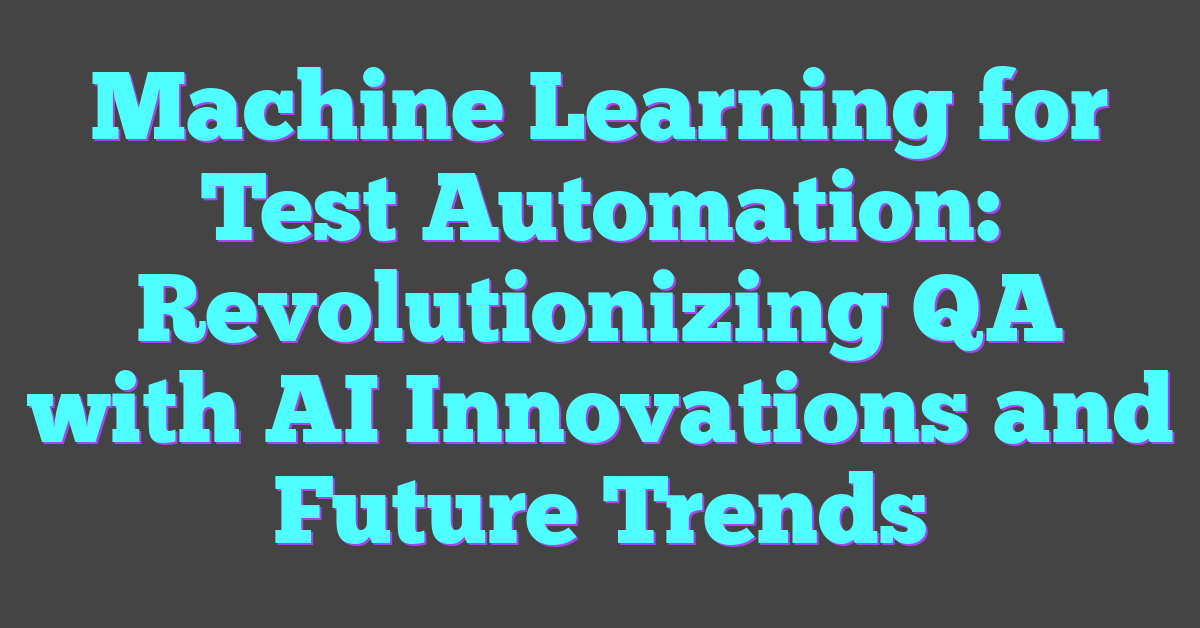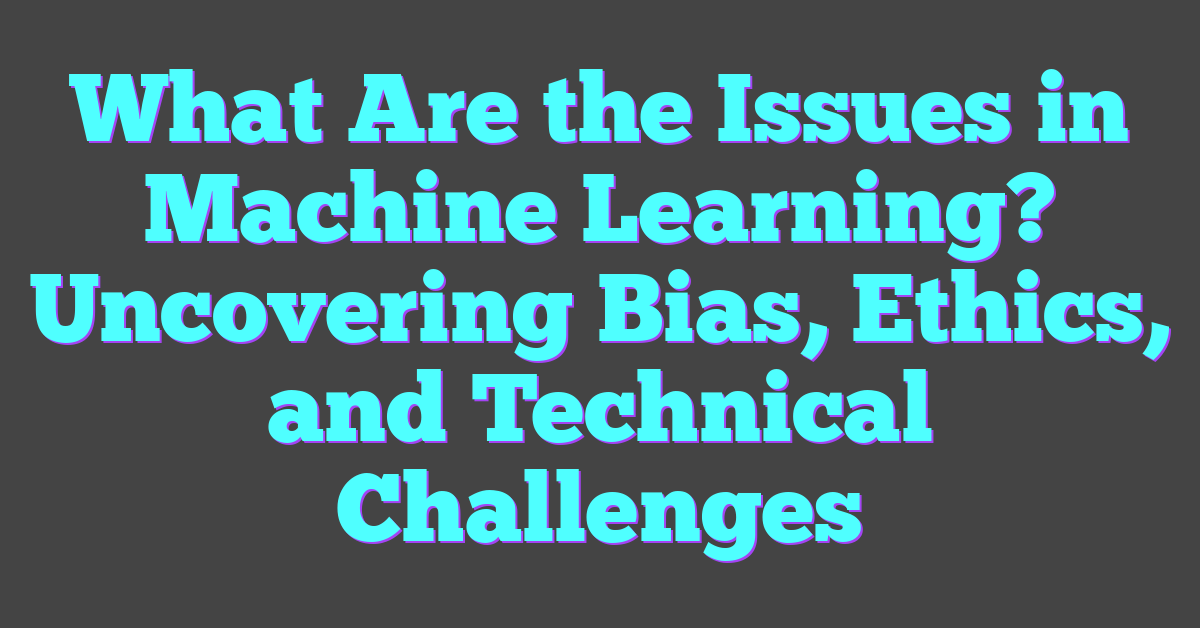Imagine a world where coding isn’t just for the tech-savvy but accessible to anyone with a great idea. With advances in artificial intelligence, this isn’t as far-fetched as it sounds. AI has already made strides in various fields, and now it’s venturing into the realm of software development.
From generating simple scripts to tackling complex algorithms, AI is proving to be a versatile tool for coding. But how effective is it really? Can it replace human programmers, or is it just a helpful assistant? Let’s dive into the fascinating world of AI-driven coding and explore its potential and limitations.
Exploring the Capacity of AI to Write Code
AI is transforming the coding landscape by creating opportunities for both novice and experienced programmers. It enhances productivity and innovation in software development by automating repetitive tasks and generating sophisticated algorithms with precision.

The Current State of AI in Coding
AI coding tools have advanced significantly in recent years. They can now generate code snippets, debug sections of code, and even create entire applications under certain conditions. Notable technologies include OpenAI’s Codex and GitHub’s Copilot, which leverage natural language processing to understand and generate code in various programming languages. These tools integrate seamlessly with development environments, allowing programmers to focus on higher-level problem-solving.
Current AI models excel at repetitive tasks, understanding common coding patterns, and suggesting optimizations. However, challenges remain, including contextual understanding and dealing with highly specialized or undocumented code. While AI can augment human capabilities, domain-specific knowledge and creativity are areas where human programmers still have an edge.
Key Technologies Behind AI Coding Tools
Several technologies drive the capabilities of AI coding tools:
- Natural Language Processing (NLP): NLP enables AI to understand and generate human-like text, allowing for the translation of natural language queries into code. Examples include GPT-3 and BERT models.
- Machine Learning: Machine learning algorithms analyze large datasets of code to identify patterns and suggest improvements. These models continually learn and adapt, improving their accuracy over time.
- Deep Learning: Deep learning architectures enhance AI coding tools’ ability to handle complex tasks, such as generating coherent code segments or debugging intricate issues.
- Reinforcement Learning: This technique allows AI to learn optimal coding practices by receiving feedback from its actions, improving its problem-solving skills in an iterative manner.
These technologies work together to create a robust ecosystem that simplifies coding, optimizes workflows, and supports innovation in software development.
How AI Writing Code Is Changing Industries
AI-generated code is transforming industries across the board, enhancing productivity and driving innovation in unprecedented ways.
Impact on Software Development
AI is revolutionizing software development by streamlining numerous processes. Automated code generation tools like OpenAI’s Codex and GitHub’s Copilot enhance developers’ efficiency by handling repetitive tasks, allowing them to focus on more complex problems. These tools utilize Natural Language Processing (NLP) to interpret human language inputs and produce relevant code snippets. This capability reduces the time spent on mundane coding tasks and minimizes errors, fostering more reliable and maintainable software.
Machine Learning (ML) models further optimize the coding process by identifying patterns and suggesting improvements. For instance, they can detect security vulnerabilities and suggest fixes before issues escalate. Continuous Integration/Continuous Deployment (CI/CD) pipelines also benefit from AI, as intelligent systems can automate testing, deployment, and monitoring tasks, ensuring faster delivery cycles.
Changes in Other Tech Fields
Beyond software development, AI’s impact is felt across various tech domains. In cybersecurity, AI-driven tools can analyze large datasets to identify potential threats and anomalies, ensuring robust protection against cyber-attacks. These systems leverage ML algorithms to learn from past incidents, continuously improving their threat detection capabilities.
In data analysis, AI automates the extraction and transformation of data, enabling quicker and more accurate insights. Data scientists can now leverage AI-powered tools to preprocess data, perform complex analyses, and visualize results, significantly reducing the manual effort involved.
The hardware industry also benefits from AI-generated code. Automated design tools help create optimized hardware configurations by simulating numerous design scenarios. These tools use AI algorithms to predict the performance and energy efficiency of different designs, accelerating the development of more efficient hardware solutions.
By incorporating AI-generated code into various tech fields, industries can achieve higher efficiency, reduced costs, and enhanced innovation.
AI Coding Tools You Should Know About
AI coding tools transform how developers write code, streamlining workflows and enhancing productivity.
Popular AI Coding Assistants and Platforms
Several AI coding assistants and platforms have gained prominence:
- OpenAI’s Codex: This powerful tool uses NLP to generate code from natural language descriptions. OpenAI’s Codex supports multiple programming languages, making it versatile for various development tasks.
- GitHub Copilot: Integrated directly into popular code editors like Visual Studio Code, GitHub Copilot autocompletes code snippets, suggests entire functions, and assists with debugging.
- TabNine: Known for its comprehensive support of numerous programming languages, TabNine employs machine learning models to offer context-aware code completions and predictive typing.
- Kite: This assistant focuses on Python, providing intelligent code completions and real-time analysis to help developers write error-free, optimized code.
- Amazon CodeGuru: Amazon CodeGuru reviews code for potential improvements, offering suggestions on best practices and detecting performance bottlenecks.
These tools enhance coding efficiency by automating mundane tasks and providing intelligent recommendations.
Evaluating the Effectiveness of AI Coding Tools
Effectiveness of AI coding tools can be evaluated through several metrics:
- Accuracy: The precision of code suggestions and error detections determine a tool’s reliability. High accuracy minimizes the need for manual interventions.
- Speed: Assessing how quickly AI provides suggestions is crucial, as faster responses streamline development workflows.
- Usability: User-friendly interfaces and seamless integration with popular IDEs make AI tools more accessible for developers.
- Adaptability: The capacity to support multiple programming languages and adapt to varying coding styles enhances a tool’s versatility.
- Impact on Productivity: Evaluating improvements in development speed, error reduction rates, and overall productivity gains provides insight into a tool’s practical benefits.
Effective AI coding tools offer accurate, rapid, and context-aware assistance, fundamentally altering the software development landscape.
Ethical Considerations and Challenges
AI coding tools present various ethical considerations that require attention.
Debating the Risks of AI-Generated Code
AI-generated code can introduce significant risks. Examples include potential biases inherent in AI systems, as noted by a 2019 study from MIT (Buolamwini & Gebru), which found that AI models could perpetuate and even amplify existing biases. Security vulnerabilities also present concerns since AI might produce code without understanding nuanced security implications fully. It’s crucial to have a robust mechanism to review and validate AI-generated code to mitigate these risks.
Addressing Job Displacement Concerns
The rise of AI in coding raises job displacement concerns. Reports like PwC’s 2018 analysis indicate that AI could automate up to 30% of jobs by the mid-2030s, including those in software development. However, AI can also create new opportunities, augmenting human capabilities rather than replacing roles entirely. Education and retraining programs can help professionals adapt to this changing landscape, enabling them to leverage AI tools for enhanced productivity.
Conclusion
AI’s ability to write code is transforming the software development landscape. Tools like OpenAI’s Codex and GitHub’s Copilot are making coding more accessible and efficient. While challenges like contextual understanding and ethical concerns exist, the benefits in productivity and automation are undeniable. By embracing these tools and addressing potential risks, developers can harness the power of AI to create better and faster solutions. The future of coding looks promising with AI as a valuable ally.
Frequently Asked Questions
What are some examples of AI tools for coding?
Some examples of AI tools for coding include OpenAI’s Codex, GitHub’s Copilot, TabNine, Kite, and Amazon CodeGuru. These tools leverage natural language processing and machine learning to assist developers by automating tasks, suggesting code optimizations, and enhancing overall coding efficiency.
How do AI tools enhance coding efficiency?
AI tools enhance coding efficiency by automating repetitive tasks, suggesting improvements, and offering real-time code completions. They help developers focus on complex problem-solving while reducing the time spent on routine coding activities.
What are the main features of GitHub Copilot?
GitHub Copilot’s main features include real-time code suggestions, support for multiple programming languages, and the ability to understand natural language prompts. It integrates seamlessly with popular code editors like Visual Studio Code, providing a highly interactive coding experience.
Are there any ethical concerns with using AI coding tools?
Yes, there are ethical concerns with using AI coding tools. These include potential biases in AI-generated code, security vulnerabilities, and the impact on job displacement. Addressing these issues through rigorous validation and ethical guidelines is essential.
How accurate are AI coding tools?
The accuracy of AI coding tools can vary based on the complexity of the task and the specific tool being used. Generally, they are becoming increasingly accurate, but they may still require human oversight to ensure the code meets all requirements and conforms to best practices.
Can AI coding tools replace human developers?
AI coding tools are not designed to replace human developers but to augment their capabilities. They handle repetitive and mundane tasks, allowing developers to focus on more complex and creative aspects of software development.
What measures can be taken to mitigate risks associated with AI-generated code?
To mitigate risks associated with AI-generated code, it’s crucial to implement robust validation mechanisms, perform thorough code reviews, and establish ethical guidelines. Continuous monitoring and adapting education and retraining programs for developers can also help manage these risks.
How do AI tools like Amazon CodeGuru work?
Amazon CodeGuru works by using machine learning to analyze code for potential issues, suggesting performance improvements, and automating code reviews. It helps developers identify and resolve bugs, optimize resource usage, and enhance code quality.
What criteria should be used to evaluate the effectiveness of AI coding tools?
To evaluate the effectiveness of AI coding tools, consider criteria such as accuracy, speed, usability, adaptability to different coding environments, and the impact on overall productivity. These factors help determine how transformative the tool can be for software development.




